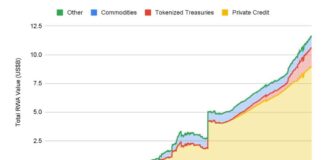Microsoft is constructing large AI data centers in Arizona and Wisconsin to support this innovative technology. However, these data centers are heavy energy consumers and strain power grids, with AI projected to consume 40 gigawatts of the global 96 GW power demand from data centers by 2026. This energy usage generates heat and requires significant water for cooling, putting pressure on local water resources.
Contrary to common belief, Bitcoin mining plays a crucial role in stabilizing power grids and making them more efficient. Bitcoin miners can adjust their energy consumption in real-time, helping grid operators balance energy production with user demand. This flexibility is especially valuable during high or low electricity demand periods, providing an additional response action for grid operators. This capability is a scalable and economically feasible solution to balance power grids, particularly when renewable energy production fluctuates.
States like Oklahoma are recognizing the benefits of Bitcoin mining for power grid stability. Legislation has been passed to exempt tax on mining equipment sales if miners contribute to grid balance by adjusting energy consumption. In Texas, Bitcoin miners help stabilize power grids by consuming excess wind energy during off-peak hours, preventing grid overload and blackouts. Similarly, in Scandinavia and Iceland, Bitcoin miners are utilizing surplus renewable energy to maintain grid equilibrium and support the renewable energy industry.
Moreover, Bitcoin mining contributes to the financial viability of renewable energy projects. By providing a constant demand for renewable energy, miners bridge the gap between supply and demand, ensuring a steady revenue stream for wind and hydropower projects. This positive impact makes renewable energy projects more economically attractive and promotes the use of sustainable energy solutions worldwide.
The integration of smart grid software with Bitcoin mining operations holds promise for optimizing electricity production and distribution. This collaboration can enhance power grid efficiency, especially in regions with growing populations and significant renewable energy resources or energy-intensive AI data centers. As global energy management continues to evolve, Bitcoin miners are becoming valuable partners in expanding renewable energy production and improving overall energy management.














